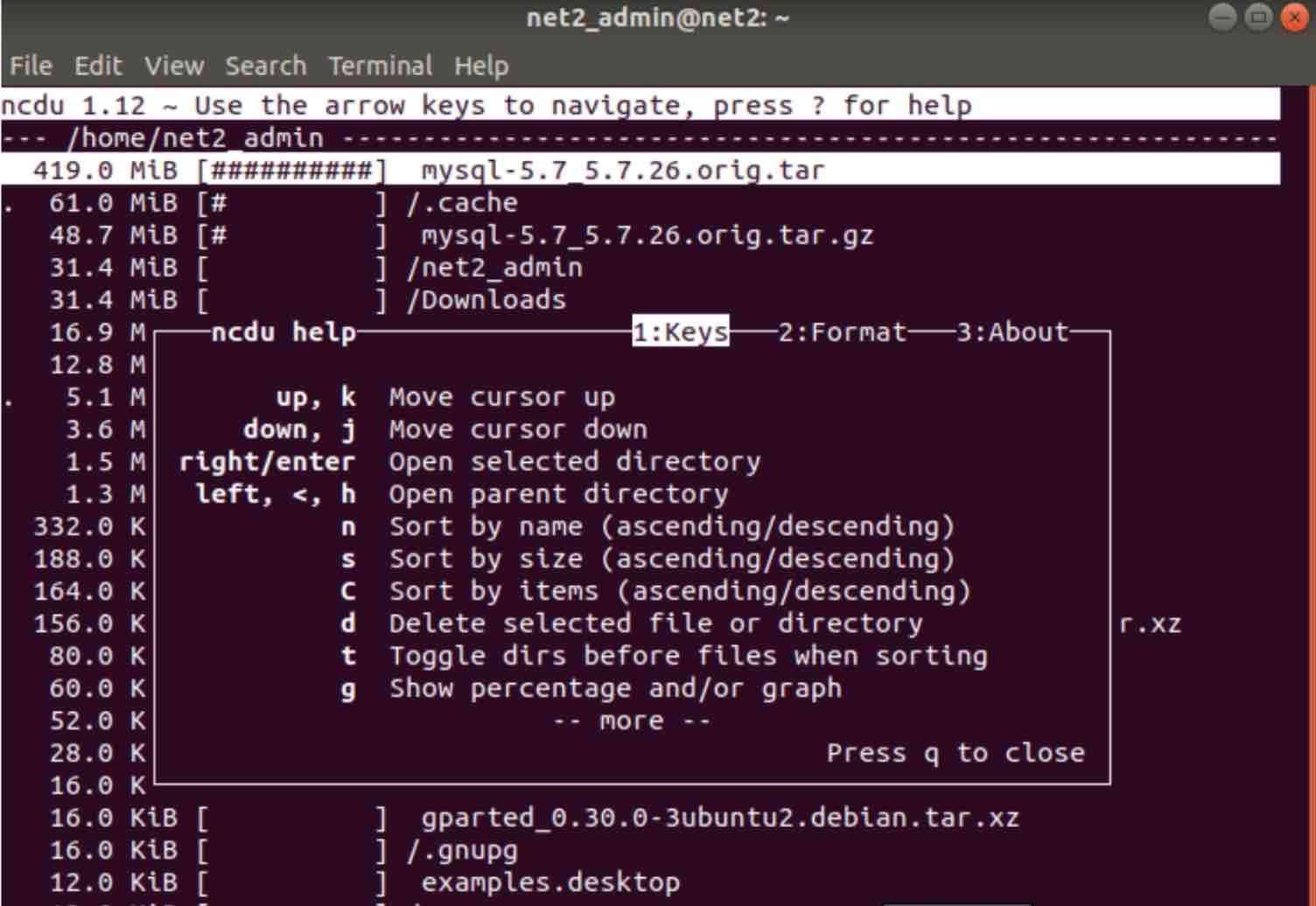
- #Mucommander calculate folder size full
- #Mucommander calculate folder size portable
- #Mucommander calculate folder size code
So I tried looking for an alternative solution. However, I didn't have enough patience to do apply the tool. One option is to assemble the *.app package using Launch4j. Launching a GUI app from the command line is not convenient at all.
#Mucommander calculate folder size portable
The native installer did not work, saying that the launcher is corrupted, but the portable version worked just fine via the command line: Stumbled upon an issue with installing muCommander on Mac. With this, I can confirm, that XRebel works with Grails 3 :) Here's the another snippet, with DSL-style: One can use the absolute path just fine in there. In the example above, xrebel.jar is the agent package that is located somewhere in my file system. Thanks to here's the snippet that you'd have to add to adle file to setup a -javaagent argument, given that the agent JAR is located somewhere in file system: Turns out, it's not as simple as you would expect. Thus, the first thing I wanted to check is how could I set up a -javaagent for Grails 3 application. My personal interest with any new framework or server is usually related to the projects I'm working with. Setting up a -javaagent argument for Grails 3 There are many other nice things added - go look for yourself. Even XML version of it (yes!) would have been more practical. It's almost impossible to modify it without reading the documentation. What's not that cool ( my own very subjective opinion), is the introduction of application.yml.

Have fun!įor the first time, it feels like Grails is not a toy framework any more :) I hope you get my point now, why this strange question is a very good one for the Java interviews. This most likely shows that he or she remembers what is written in Item 7 from Effective Java. Maybe some rare candidate can tell about legitimate uses of finalize(). Usually you’d check why one shouldn't use finalize() in first place. finalize - the discussion about finalize() method is only useful to validate the nerd level of the candidate.finally - talk more about the exceptions in Java and discuss some puzzles.Or you can discuss how the final keyword helps with concurrent programming in Java. final - you may take the discussion to Reflection API, for instance.OK, you asked this and candidate answered this brilliantly, now what? Well, I did tell you that it is a very good question to start with, didn’t I? Next, you can take it to any direction of your choice: Those who don’t - you just don’t have to interview them further :) How is this even a question, you would ask? Asking about the difference of the things that cannot be compared!? Well, apparently, a lot of developers can't make a clear difference. Here’ it is: What is the different between final, finally & finalize? And it is quite efficient in filtering the candidates early enough if have to screen a lot of candidates. It is almost the best question to start with. There is no best approach for the interviews - it merely depends on the expectations, candidate background, position, day of the week, weather, whatever else.ĭespite all the details, I’ve found one interview question that works like a charm. I have tried various approaches for the interviews: various tests about language and the APIs, whiteboard programming, bug hunting, homework assessments, etc.
#Mucommander calculate folder size full
I have been interviewing candidates for Java developer jobs for a full decade at this point. If the class is packaged within the WARs, then you get 2 instances of the Singleton. The the answer depends much on how the class is loaded.

If you deploy 2 web applications with the same Singleton class, will there be two instances of the same Singleton or one? Of course, there isn't one true answer for this question - you have to ask the details. Yes! And you can't imagine how many people do fail with this. No one understands Java Memory Model anyway :)īTW, did you know that a single-element enum type is the best way to implement a Singleton? And while it leads to the discussion about Java Memory Model, it's not the most interesting one. It often comes down to the discussions about the Singleton being lazy or eager. Because Singleton is so simple, you can use it as a starter for so many interesting discussions. One of my favourites is the Singleton pattern. But I still find it useful to do some coding exercises at the whiteboard.
#Mucommander calculate folder size code
I'm not a big fan to ask to write code at the interviews.


 0 kommentar(er)
0 kommentar(er)
